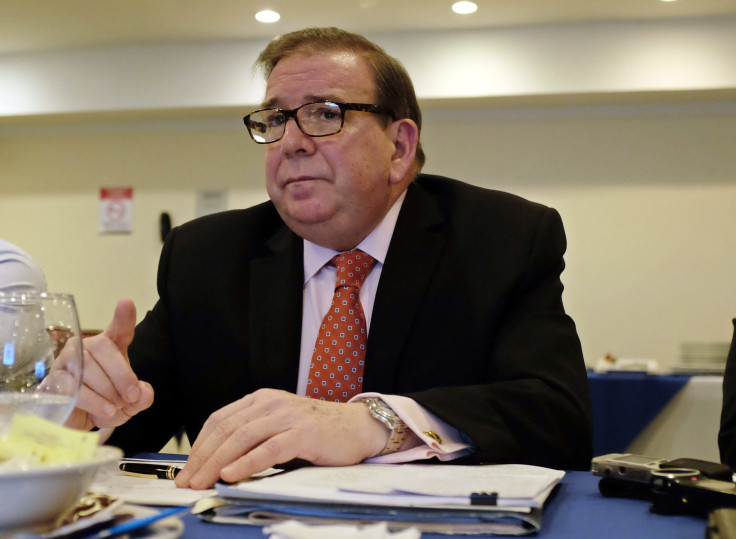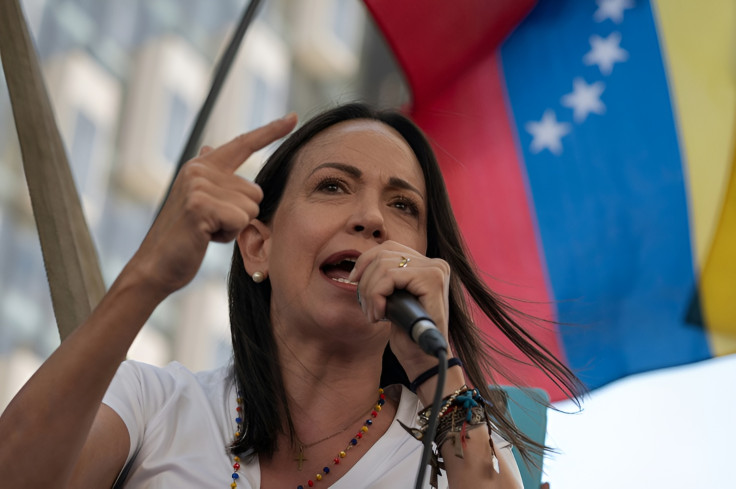
Edmundo González Urrutia, the Venezuelan opposition's presidential candidate set to face President Nicolás Maduro in the July presidential elections, said in an interview with the BBC published Thursday that the latest sanctions imposed on the country by the United States are not aimed at its people but only "against individuals within the government."
"The issue of sanctions will be reviewed and analyzed after our victory on July 28. The sanctions have a reason and are related to the actions of the government and the individual actions of some government officials. The sanctions are not against the country, but against individuals within the government," the 74-year-old presidential candidate said.
The statement came in response to a question from journalist Norberto Paredes, who pointed out that Chavismo, the political group created by Hugo Chávez and now led by Maduro, accuses the opposition of asking for or being behind the oil and gas sanctions that are affecting the country's economy.
"Now the opposition wants to sell him to us as a poor old man, but this man [González] is a perverse individual (...) This man is part of a perverse plan to continue harming our people," Diosdado Cabello, considered Maduro's second-in-command, said.
The Biden administration reimposed oil and gas sanctions on Venezuela in April after President Nicolás Maduro failed to comply with a U.S.-backed agreement to take several steps toward freer and fairer elections.
"Despite delivering on some of the commitments made under the Barbados electoral roadmap, we are concerned that Maduro and his representatives prevented the democratic opposition from registering the candidate of their choice, harassed and intimidated political opponents, and unjustly detained numerous political actors and members of civil society", the Biden administration said back then.

The decision came after the disqualification of María Corina Machado, who had been elected as the candidate of the Democratic Unity Platform (PUD) in a wide-ranging primary held last October, and then of Corina Yoris, who had been designated as her substitute.
González, a former Venezuelan diplomat who had retired just three months before being anointed as candidate, is now backed by almost all the opposition.
However, he will still face many hurdles. In March, the United Nations' International Independent Fact-Finding Mission on Venezuela (FFM) warned that on the doors of 2024's elections Maduro's government has entered "a reactivation of the most violent form of repression."
The president of the UN mission, Marta Valiñas, said that there are "serious difficulties in ensuring that the upcoming presidential elections proceed in accordance with the right to participate in public affairs as outlined in the International Covenant on Civil and Political Rights."
Moreover, the Venezuela's National Electoral Council (CNE) revoked the invitation to the European Union to send observers to the electoral process, which some see as a sign that the elections are unlikely to be fair and competitive.
"It is a bad signal from the Executive to the international community," González said in the BBC interview.
"International observers always provide assurances to governments. A government that prevents the presence of international observers sends a bad signal, as if it wants to hide something."
"However, we have replaced that international observation with thousands and thousands of Venezuelans who will be the observers in this process and who, with their votes, will achieve the victory we aspire to," he added.
© 2024 Latin Times. All rights reserved. Do not reproduce without permission.







